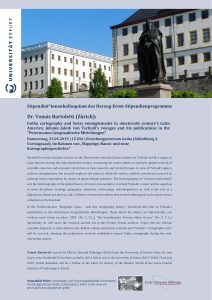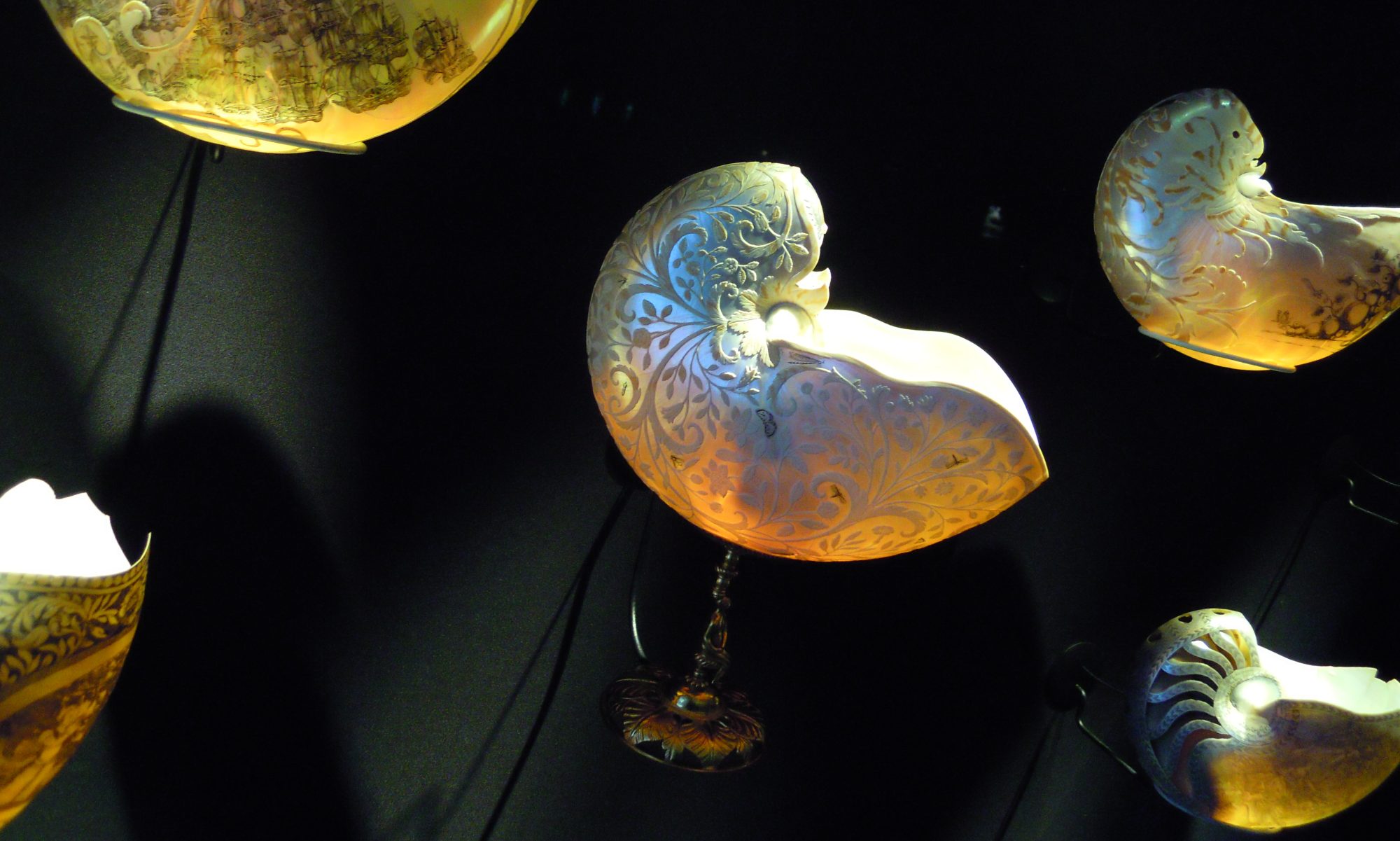Am Donnerstag, den 23. Mai ab 15:00 Uhr spricht unser Stipendiat Dr. Tomás Bartoletti (Zürich) über seine neuesten Forschungserkenntnisse aus Gotha. Sein Vortrag m it dem Titel „Gotha cartography and Swiss entanglements in nineteenth century’s Latin America: Johann Jakob von Tschudi’s voyages and his publications in the ‚Petermanns Geographische Mitteilungen'“ findet im Rahmen von „Mappings: Raum- und neue Kartographiegeschichte“ statt. Alle Interessierten sind herzlich eingeladen! Der Veranstaltungsort wird je nach Nachfrage entweder der Besprechungsraum oder der Vortragssaal des Forschungszentrums sein.
it dem Titel „Gotha cartography and Swiss entanglements in nineteenth century’s Latin America: Johann Jakob von Tschudi’s voyages and his publications in the ‚Petermanns Geographische Mitteilungen'“ findet im Rahmen von „Mappings: Raum- und neue Kartographiegeschichte“ statt. Alle Interessierten sind herzlich eingeladen! Der Veranstaltungsort wird je nach Nachfrage entweder der Besprechungsraum oder der Vortragssaal des Forschungszentrums sein.
Abstract
Bartolettí’s research project focuses on the Glarus-born naturalistJohann Jakob von Tschudi and his voyages in Latin America during the mid-nineteenth century, examining his career within an extensive global network of scientific expertise and economic enterprises in Latin America and Central Europe. In view of Tschudi’sagency in these entanglements, the research explores the extent to which his activity could be considered as part of an informal Swiss imperialism by means of quasi-colonial practices. The historiography of “Colonial Switzerland“ and the historiography ofthe global history of science has tended to overlook Tschudi’s career and his expertise in many disciplines (zoology, geography, chemistry, archaeology, ethnolinguistics), as well as his role as a diplomat in Brazil and Austria, and a collector of material evidence that formed ethnological and natural science collections in Switzerland. In the Perthesseminar „Mappings: Space -and new cartography history“, Bartoletti will refer to Tschudi’s publications in the Petermanns Geographische Mitteilungen: “Reisedurch die Andes von Süd-Amerika: von Cordova nach Cobija im Jahre 1858” (Nr. 2, T.1.); “Die brasilianische Provinz Minas Geraes” (Nr. 9, T 1.). Specifically, he will share the research carried out in the Perthes Forum archives. Topics like the German scientific migrants in Latin America, the British mining enterprises in Brazil and Tschudi’s “cartographic turn” will be covered, showing the polycentric network established around Gotha cartography during the mid-nineteenth century.
